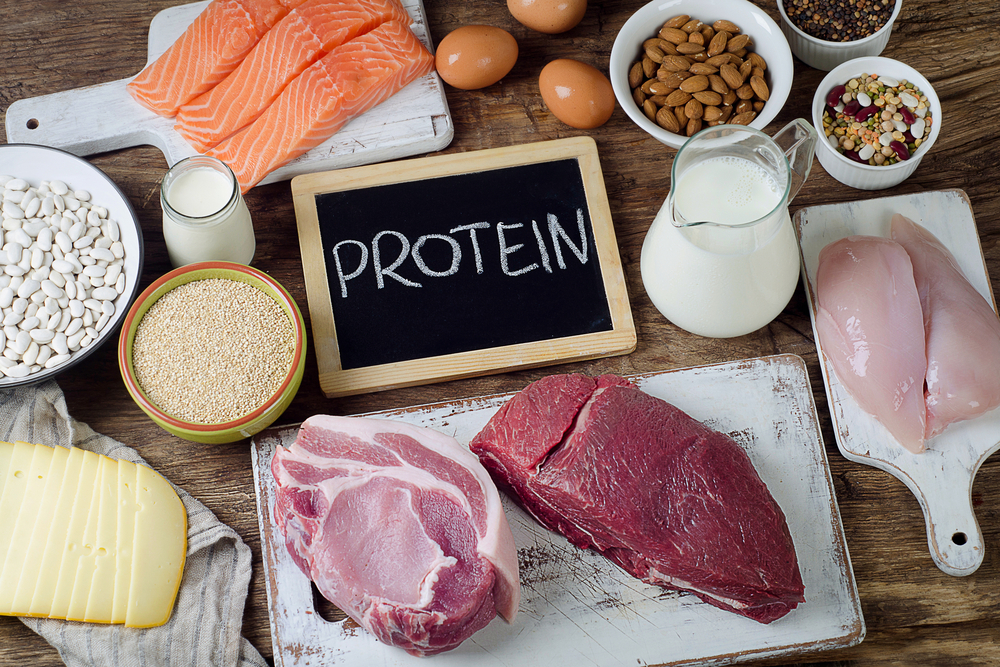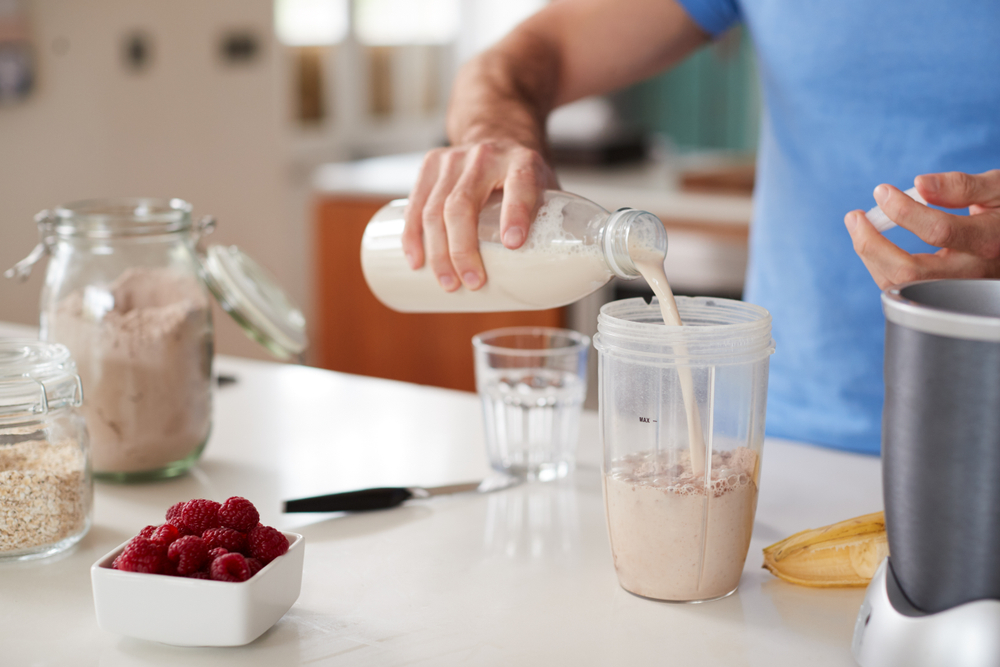SEARCH BLOG POSTS

What Happens If You Eat Too Much Protein?
It’s a crucial ingredient for athletes—but how much is too much protein? If you’re worried about what happens if you have too much protein, we’re here to help you find the right balance.
What Happens When You Eat Too Much Protein?
At Jack City Fitness, we rely on protein for energy, muscle recovery, and nutrition. We also know that many of our Partners stick to a low-carb diet, making protein a star ingredient of most meals. Whether you prefer your protein whipped into a shake or grilled to perfection, it’s an ideal food for any athlete.
However, you may be wary about going overboard with it—after all, who hasn’t heard the phrase, “Too much of a good thing?”
Over the years, there have been countless studies and discussions about the impact of protein consumption. There have been questions about whether excess protein could negatively impact health for years. The answers to these questions are not simple. The impact of eating too much protein will depend on your own health and background.
If you’re thinking of introducing significantly more protein into your diet or are concerned about your current intake, we recommend speaking to a professional, whether it’s a nutritional counselor or your GP.
How Much Protein Do You Actually Need?
The amount of protein that you need will depend on your circumstances. Depending on your age, physical health, background, and fitness goals, your ideal protein intake might be way too much protein for somebody else.
There is an official Recommended Daily Allowance for protein, which individuals can calculate according to their body weight. The RDA is 0.36 grams of protein per pound.
Are There Side Effects of Too Much Protein?
Yes, there can be a risk of too much protein. However, these potential risks or side effects are easy to avoid if you know what they are and how they might affect you.
-
Uneven Nutrition
Are you eating too much protein but not enough of other nutrients?
Yes, protein is super important for athletes to consume. That doesn’t mean it should supersede the importance of other nutrient groups. You still need fiber and healthy fats and carbohydrates in your diet, too. If you want to perform your best at the gym, and feel your best on a daily basis, we recommend finding a balance—not just leaning on protein.
-
Dehydration
Do you ever feel thirsty after a protein-rich meal? That’s because your kidneys are working harder than usual to eliminate leftover residue. In this elimination process, your body is also losing some important nutrients, like magnesium, sodium, and potassium. It can be helpful to counter this loss with proper hydration and nutritional intake. We also recommend eating some nutrient-rich fruits and vegetables with high water content. These are healthy carbs that will hydrate your hardworking kidneys and reward your body with much-needed nutrients.
-
“Keto Breath”
If you’ve ever kept a low-carb diet, you might’ve experienced some funky breath. This is because your body gose into ketosis, which is the stage where you burn fat. While those hoping to shed some weight love ketosis, the chemicals released during this process are known to cause strange-smelling breath. In general, ketosis occurs when consuming a diet that is high in protein and healthy fat.
-
The Wrong Protein Source
Not all protein is the same in terms of health and fitness benefits. You can run the risk of too much protein if it has been prepared in specific ways. Certain high-protein items, like processed meats (bacon, salami, or jerky), have been shown to have adverse health effects.
-
Medical Issues
While many people stick to a high-protein diet with no adverse effects, that isn’t the case for every athlete. In some populations, excess protein can lead to heart or kidney complications. This is why we always recommend speaking to a healthcare professional before starting a high-protein diet.
Protein in Food vs. Protein in Drinks: What’s Better?
The answer to this question is entirely subjective. Both food-based and drink-based protein can be great choices for athletes—it all comes down to personal taste and goals. For some athletes, drinks or shakes are ideal because they are a great way to consume all of their protein quickly, and without too much additional caloric intake. For other athletes, a nutritious protein bar or homemade lunch is a satisfying and healthy way to recover after a workout. These are both excellent options, and the right one for you will depend on your unique needs.

Are High Protein Drinks Healthy?
Yes—but the answer is more complex than that. While drink-based protein sources like shakes are great for athletes, we do recommend you do your research on what products you choose. While there are many benefits of protein powder (and things like energy bars and workout-friendly snacks), not all brands are created equal. Be sure you’re choosing a protein product that uses ingredients you want to be consuming, and has additives you’re comfortable with—some use artificial coloring or refined sugar!
Can Protein Make You Fat?
Despite the popularity of low-carb diets, many people who consume a protein-heavy diet to lose weight actually gain more! This can be for a couple of reasons.
Firstly, some folks lose a lot of weight fast by cutting all carbs and only eating protein. When they hit their goal weight and reintroduce carbs, they gain it all back. This is why we recommend a more balanced nutritional plan where carbs aren’t entirely eliminated—it’s more sustainable!
A second reason that a high-protein diet can cause weight gain is caloric or fat intake. For many people who cut carbs out of their diet, the protein they replace them with is still high in calories or fat. Often, this causes weight gain or plateauing.
What Are The Best Sources of Protein?
There are all kinds of healthy sources of protein to include in your diet. Aside from the shakes and bars we’ve already mentioned, there are tons of whole foods you can consume to boost your protein levels in a healthy way. Eggs, nuts, quinoa, lean meat (like turkey or chicken), yogurt, fish, legumes, seeds, and cottage cheese are all packed with the right type of protein, along with other important nutrients. Plus, they’re delicious and versatile!
We’re Here to Support You
At Jack City Fitness, we have everything athletes need to meet all their goals—and that includes dedicated nutritional counseling sessions, one-on-one fitness coaching, group classes, and 24/7 access to our Boise facility.
If you’re ready to start seeing the results you want, get in touch with our team by calling (208) 999-1111. We’ll invite you over for a FREE fitness consultation and tour of our gym. Once you sign up to become a Jack City Partner, you’ll be able to jump right into everything we have to offer! We can’t wait to meet you and help you crush your goals!
